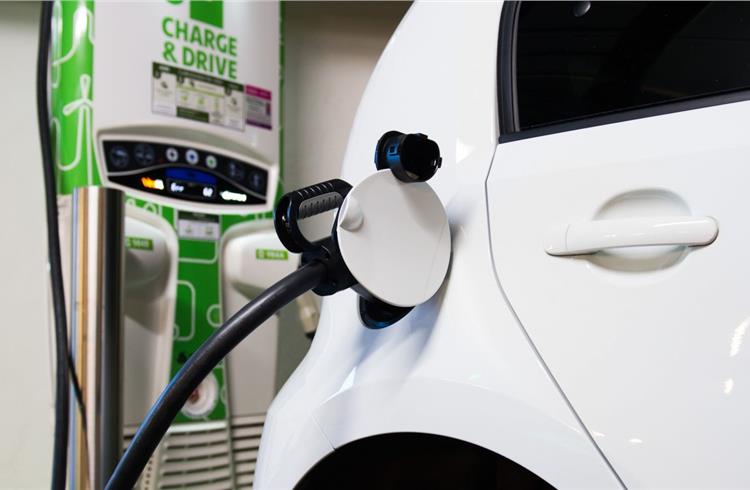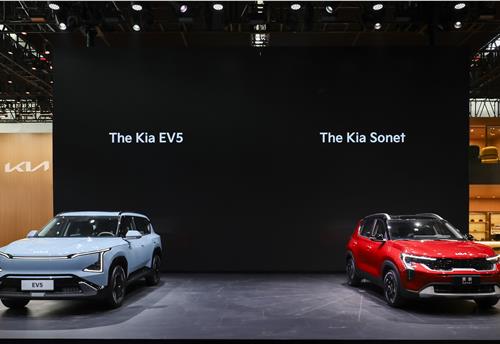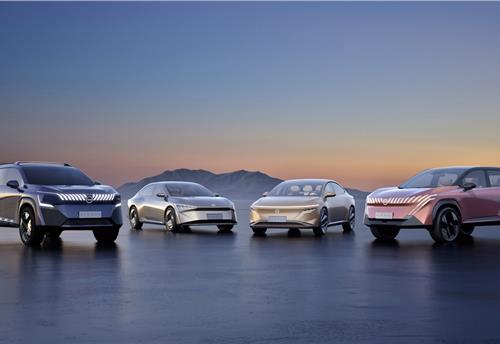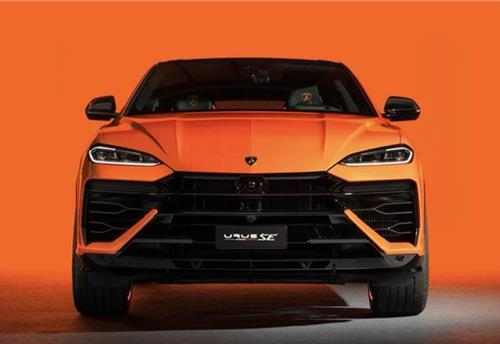EVs constitute more than half of new PV sales in Norway’s capital
The exponential growth of EVs, with annual sales increase of more than 100 percent, was surprisingly high. The report says fantastic as it is, it also creates challenges.
The road for electric vehicles (EVs) may have just begun globally, but there are some cities which are leading by example for defining the future of mobility. Scandinavia, home to not just many of the world’s leading OEMs – Volvo, Scania, Mercedes-Benz, Saab to name a few, but also home to the EV capital of the world, Oslo, the capital of Norway.
As per an article in World Economic Forum (WEF), Oslo is setting an example that it is possible to boost the sales of EVs, that they work in a rough Nordic climate, and that a major shift could be just around the corner. For the first time in history, more than half or 53 percent of all new cars sold in Oslo were electric. With a record high of 39 percent of all new cars being fully electric, Norway is by far the country with the highest market share for EVs by capita globally, even if Los Angeles, Beijing and Shanghai have higher sales in absolute numbers.
The report says in 2017 new car sales in Oslo accounted for more than 50 percent including full battery electric (37.5%) or a plug-in hybrid (14.1%), according to the Norwegian Road Federation. And in the current year the exponential growth of EV sales in Oslo has continued, with a robust 53 percent sales share for EVs so far.
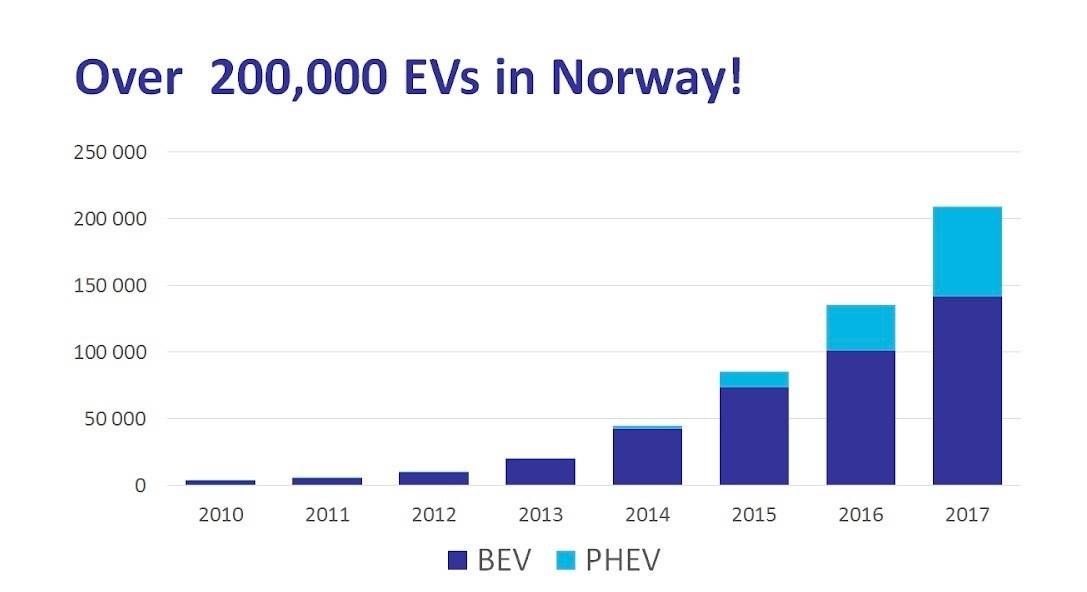
Infographic: WEF/The Norwegian EV Association
It further highlights that currently, electric cars make up 16 percent of total cars in Oslo, with 9 percent full electric and 7 percent plug-in hybrids. A major transition towards zero emission cars is now well on track, with the growth much faster than anticipated a couple of years ago.
The road map for driving EV sales in terms of green taxes (on less polluting vehicles) and other incentives have indeed worked. The consumers have embraced EVs in increasing numbers because the public sector has made it sensible, affordable and simple for people to make green choices in their daily life.
The Oslo model
The exponential growth of EVs, with annual sales increase of more than 100 percent, was surprisingly high. The report says fantastic as it is, it also creates challenges, for the first time since 2008, it is hard for EV users to find an available charging point in central Oslo; the number of available charging points per vehicle have dropped from one charger per four cars, to one charger per 10 cars. However, there is a solution: not only to boost the number of chargers, but also to make the charging infrastructure smarter and more efficient. The city council has recently decided to go up a gear and triple the deployment of new charging points. In close cooperation with private companies, Oslo will build fast chargers in the corridors in and out of the city. A large network of semi-fast chargers (7.4-22 kW), with a higher charging speed and higher turnover of cars, is being deployed to ensure a more cost-efficient system and less use of limited public space. The world’s first indoor parking for EVs only, Fortress, has also been part of accommodating and supporting Oslo’s growing fleet of zero-emission cars.
To drive adoption of the green vehicles the city of Oslo has planned several new measures that include –
• A car-free city centre (inner city)
• New low emission zones (greater Oslo)
• Residential parking zones with free parking for EVs (greater Oslo)
• Congestion tax (non for EVs) (the whole city)
• Increased numbers of toll gates/road throughout the city, with free passage for EVs
• A fossil-free city 2024 (greater Oslo)
• Only zero emission taxis from 2022 (the whole city)
• Ban on sales of diesel and gasoline vehicles (all of Norway from 2022)
• Temporary bans on diesel cars on the most polluting days (the whole city from 2017)
RELATED ARTICLES
Kia displays EV5 and Sonet SUVs for Chinese market
Kia has unveiled a number of key models and new technologies for Chinese customers at the 2024 Beijing International Aut...
Nissan targets growth in China, unveils four NEV concepts at Beijing Motor Show
The two EVs and two plug-in hybrids are a joint effort with Nissan’s local partner Dong Feng and aimed to better address...
Lamborghini unveils Urus SE ahead of Auto China 2024
Electric-only range of 60km helps reduce emissions by 80%.





 By Autocar Pro News Desk
By Autocar Pro News Desk
 23 Aug 2018
23 Aug 2018
 5400 Views
5400 Views



